Part of a series of articles titled Herbert Hoover, West Branch's Native Son.
Previous: Triumphs & Tragedies
Next: A Memorial & a Legacy
Article
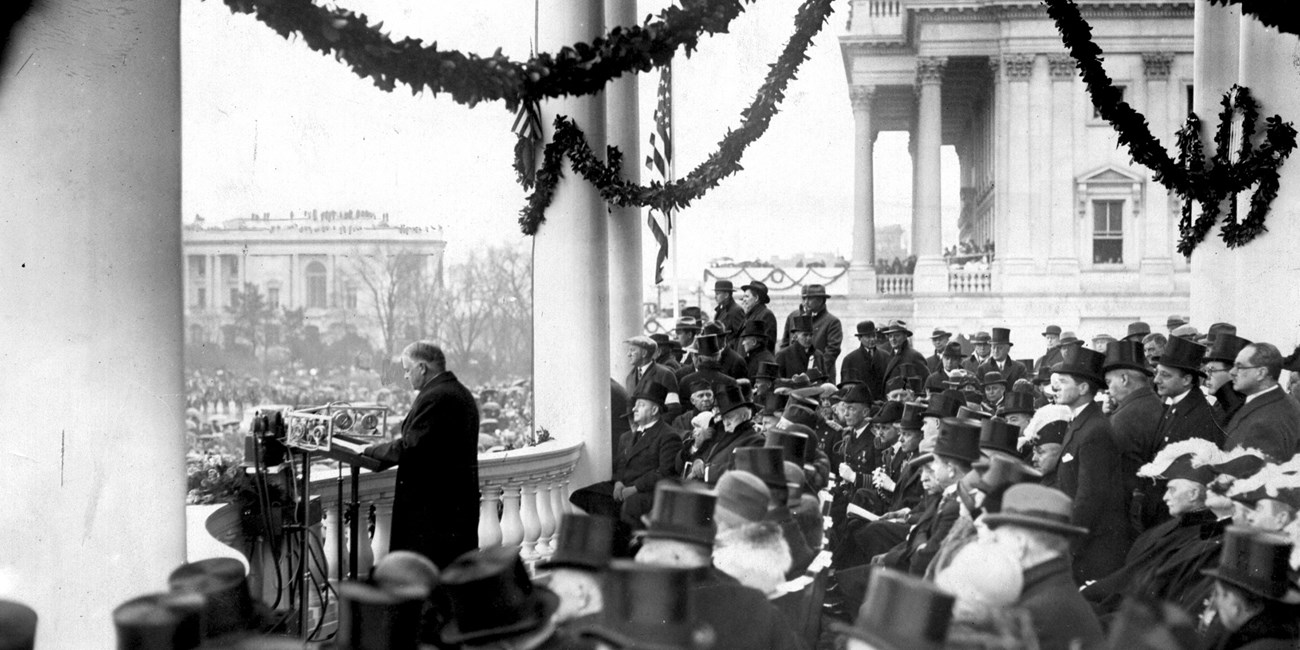
National Archives & Records Administration
"...my engineering career was over forever. I was on the slippery road of public life."
Herbert Hoover
From the ups and downs of his childhood Herbert Hoover grew to be a resilient and self-reliant man. As his personal achievements mounted, he came to believe that uncommon character opened doors of opportunities, and that individuals acting conscientiously and cooperatively could together solve great problems.
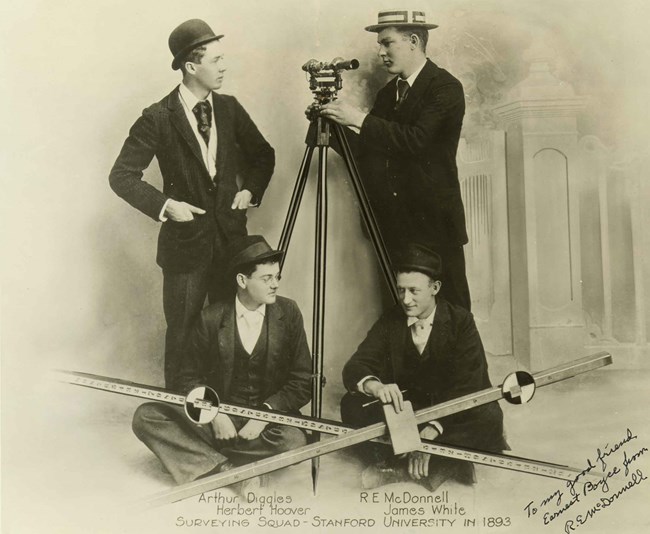
National Archives & Records Administration
After years of hard work, Herbert decided to attend college. He applied to the newly established Stanford University in California. In 1895, he graduated with a geology degree. While at Stanford he met a fellow geology classmate and Iowa native, Lou Henry— his future wife.
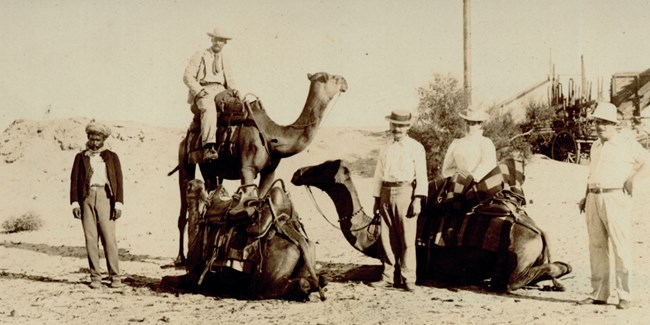
National Archives & Records Administration
Hoover put his geology degree to work as a mining engineer in Australia. His hard work paid off quickly, and his company promoted him to mine manager at the age of 23. He became known for his efficiency, practicality, and industriousness. Called the "Doctor of Sick Mines" his work took him to China, Burma,Siberia, Peru, and many other places around the world.
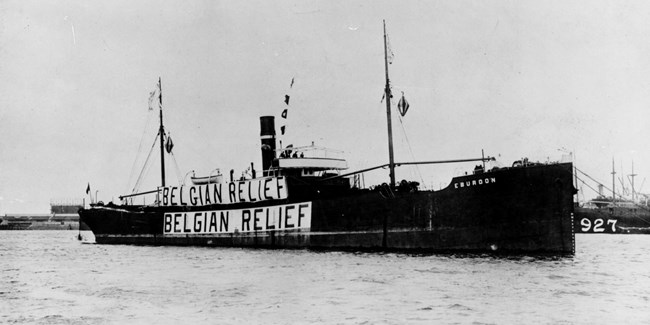
National Archives & Records Administration
Hoover's management skills stood out as he organized efforts to bring home 120,000 Americans stranded in Europe at the start of World War I. Increasingly interested in public service, he went on to assist Europeans in locating, paying for, and distributing food during the war. Nicknamed "The Great Humanitarian," Hoover's work made him world famous. Hoover resumed his global humanitarian efforts after World War II and inspired the United Nations' agency UNICEF.
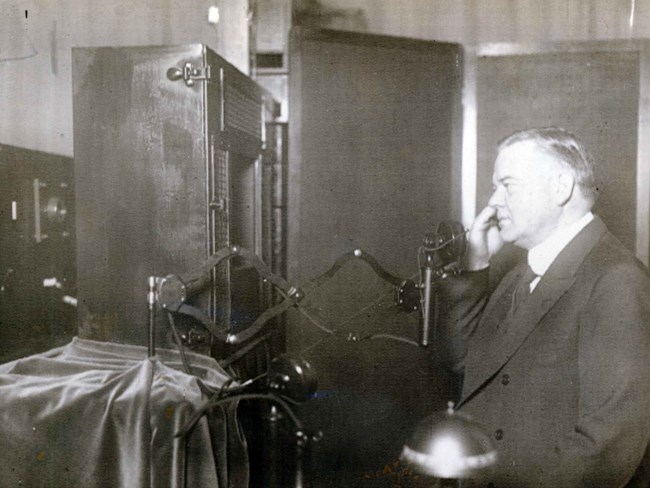
National Archives & Records Administration
President Warren G. Harding appointed Hoover to his cabinet as Secretary of Commerce. In four years, Hoover made the department a hub for American business and government. Recalling his mining engineering knowledge, he encouraged industries to eliminate waste—and increase profits—by adopting more efficient production methods.
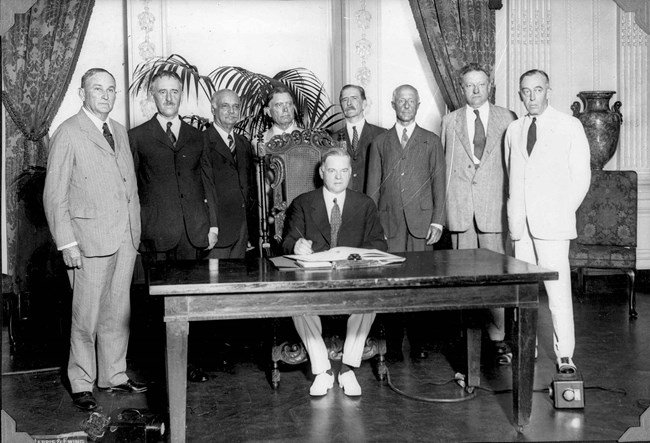
National Archives & Records Administration
During the nation's post-war prosperity in the 1920s, Hoover's reputation as a businessman, organizer, and leader won him election to the presidency in 1928 by huge margins. Four years later, voters, dismayed by the lack of relief from "The Great Humanitarian" during the Great Depression, voted him out of office in record numbers.
Part of a series of articles titled Herbert Hoover, West Branch's Native Son.
Previous: Triumphs & Tragedies
Next: A Memorial & a Legacy
Last updated: October 25, 2018